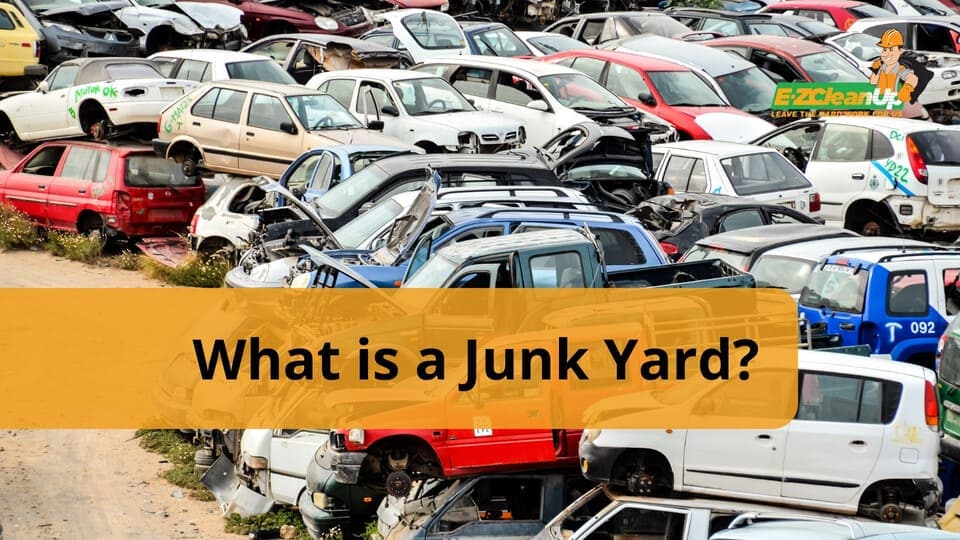The Environmental and financial Benefits of Reusing Scrap Vehicles
Recycling scrap cars and trucks provides many economic and ecological benefits that prolong well past waste reduction. By redeeming up to 90% of vehicle parts, this technique significantly minimizes garbage dump problem while protecting vital natural deposits. It cuts down on power usage and greenhouse gas emissions linked to raw product extraction and manufacturing. The process also creates job opportunity across various markets, from taking apart to logistics, and gives consumers with economical auto parts. These benefits underscore the diverse worth of recycling scrap autos, yet there are further aspects to take into consideration when examining its complete effect.
Lowering Garbage Dump Waste
Decreasing garbage dump waste through the recycling of scrap vehicles plays an essential function in ecological preservation. Efficient recycling procedures can dramatically lower the volume of waste that ends up in land fills when automobiles reach the end of their life cycle. Scrap cars and trucks, if not properly recycled, add to the growing problem of landfill overcapacity, intensifying ecological deterioration and possibly infecting dirt and groundwater with hazardous materials such as oil, gas, and heavy metals.

Additionally, the reusing procedure reduces the unfavorable impacts of auto waste on biodiversity. Land fills are well-known for interfering with regional environments, and reducing the influx of junk autos helps maintain natural environments. Ultimately, reusing scrap autos is a tactical approach that fosters sustainable waste management, straightening with broader environmental goals.
Conserving Natural Resources
In addition to mitigating garbage dump overcapacity, recycling scrap cars and trucks plays a significant role in saving all-natural resources. The auto market is heavily reliant on various metals, plastics, and various other products that need considerable mining and processing. By recycling junk cars, we dramatically minimize the demand for raw materials, thereby curbing the ecological degradation linked with mining tasks. Reusing steel from old lorries minimizes the requirement for iron ore extraction, which in turn lowers energy consumption and greenhouse gas exhausts.
Moreover, the process of recycling cars and truck elements such as copper, lead, and aluminum is much much less energy-intensive than creating these products from virgin sources. This power financial savings equates straight into lowered nonrenewable fuel source intake and lower carbon impacts (we buy junk cars Denver). Furthermore, by redeeming and repurposing materials, we expand the lifecycle of non-renewable sources, ensuring they stay readily available for future use
Moreover, reusing automotive fluids like transmission, oil, and antifreeze fluid stops unsafe materials from polluting dirt and water sources. Via organized reusing efforts, these liquids can be purified and reused, promoting a circular economic situation and further decreasing the stress on all-natural sources. Therefore, recycling junk autos provides a diverse method to saving our planet's very useful all-natural properties.
Producing Work Opportunities
The recycling of junk vehicles not just benefits the setting however also promotes financial growth by creating work possibilities. This expanding market uses a wide selection of work leads, ranging from the first collection and transportation of old cars to the complex processes of taking apart, sorting, and repurposing the numerous parts.

The expansion of recycling plants additionally intensifies the work market, requiring roles such as engineers, machine drivers, and quality assurance experts to manage the advanced machinery and ensure conformity with environmental laws. Even administrative positions, such as sales, advertising, and customer support, see a surge as the sector broadens.
Reducing Manufacturing Expenses
By integrating recycled materials from scrap autos, producers can considerably lower manufacturing prices. The utilization of recycled steel, light weight aluminum, and various other important metals minimizes the need for raw product removal, which is both expensive and energy-intensive. This not only preserves natural resources but additionally equates into significant expense financial savings for auto producers. The power required to refine recycled materials is considerably much less than that needed to create new materials from square one. This decrease in energy consumption directly correlates with reduced production costs.
In addition, the reusing procedure helps enhance the supply chain by providing a consistent influx of materials that are conveniently available and commonly cheaper than recently extracted sources. These cost effectiveness are specifically essential in a very affordable industry like automobile production, where margins can be razor-thin. Additionally, the recycling of scrap cars and trucks aids mitigate the unpredictable rates of basic materials, allowing makers to better forecast and manage their production spending plans.
Providing Inexpensive Automobile Parts
When junk autos are reused, the availability of economical vehicle parts considerably enhances, benefiting both consumers and service center. Recycled car parts are typically offered at a fraction of the cost of repairs, supplying a cost-efficient choice for lorry proprietors and auto mechanics. This cost can be crucial for people that may not have the economic means to purchase new elements, enabling them to keep their vehicles in operational and secure condition.
Repair shops additionally get from this enhanced schedule of affordable components. By sourcing recycled elements, these companies can decrease their operational costs, which can be handed down to clients through lower service fee. This, consequently, can result in higher client complete satisfaction and commitment, as customers appreciate the price financial savings without jeopardizing on quality.
In addition, the quality of recycled parts has actually improved dramatically throughout the years, thanks to innovations in recycling procedures and quality control procedures. Many recycled components undergo rigorous screening to ensure they meet industry criteria, using reliability equivalent to repairs - scrap my car. By providing a high-quality and financially feasible option, the recycling of scrap vehicles plays a crucial duty in sustaining both the auto repair work industry and the more comprehensive consumer market
Verdict
Reusing junk vehicles presents considerable financial and environmental advantages by substantially minimizing landfill waste and conserving all-natural resources. This method decreases producing prices by redeeming approximately 90% of automobile elements, thus reducing energy consumption and greenhouse gas discharges. In addition, it generates employment possibility across numerous sectors and products budget-friendly vehicle components, strengthening the auto repair market. In general, the recycling of junk vehicles supports both economic growth and sustainability purposes.
Recycling scrap automobiles presents many economic and environmental advantages that prolong well beyond waste decrease. Scrap automobiles, if not effectively recycled, contribute to the growing issue of garbage dump overcapacity, worsening environmental degradation and possibly polluting dirt and groundwater with dangerous compounds such as oil, gas, and hefty steels.
By recycling junk autos, we considerably reduce the demand for raw materials, thereby curbing the ecological deterioration linked with mining activities.When scrap cars are recycled, the schedule of budget-friendly auto parts considerably enhances, benefiting both customers and repair work shops.Recycling scrap automobiles presents considerable financial and ecological advantages by dramatically lowering garbage dump waste and saving all-natural sources.